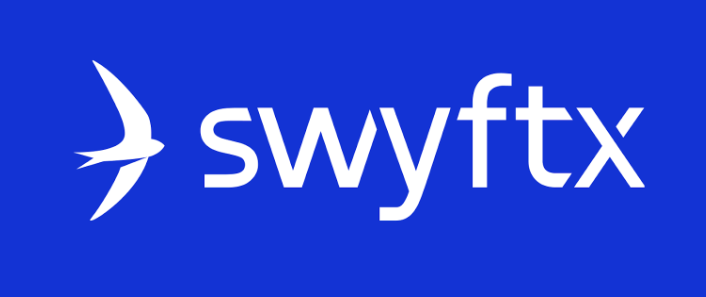Australia has released a very comprehensive draft law for tighter oversight of crypto exchanges. The law aims to ensure that all digital asset platforms are subject to financial services regulations and, hence, must obtain an Australian Financial Services License (AFSL).
Through this, the government aims to ensure consumer protection, provide regulatory certainty, and foster responsible innovation within an evolving and dynamic cryptocurrency market.
According to experts, the recent developments indicate that Australia intends to bring digital asset regulations into line with international standards, while inhibiting threats from substandard platforms.

Australia Proposes Stricter Crypto Exchange Oversight With AFSL Requirement
What Does The Draft Law Propose?
The proposed draft legislation provides two additional categories of financial products: digital asset platforms and tokenised custody platforms. If these are passed, it means that any provider offering trading, staking, or custody services for digital assets would have to comply with AFSL requirements.
Presently, only exchanges concerned with derivatives are forced to register with ASIC, whilst regular crypto platforms enjoy a fair degree of free rein. Other instruments otherwise within the bill’s purview could include wrapped tokens, public token infrastructure, and other novel forms of digital assets.
Regulators emphasise that these measures are to legalise responsible operators, prevent misuse of client funds, and increase transparency across the sector. In clearly demarcating the reach of regulation, it is hoped that the government will build confidence amongst investors and ensure that businesses enjoy certainty at law.
Will Smaller Platforms Be Exempt?
While the draft law expands on oversight, it prescribes more exemptions towards smaller or low-risk operators. Platforms that maintain an account of less than AUD 5,000 per user would be exempted from the AFSL requirement.
Meanwhile, exchanges having less than AUD 10 million turnover annually could also avoid full compliance. This tiered approach is a reflection of what exists for other payment facilities without cash in Australia, given the desire not to weigh down small innovators with compliance costs.
Regulators believe that this will keep a balance where startups can flourish whilst consumer protections are still present. The government, in its turn, has pointed out that these exemption thresholds can also be reviewed for possible changes in the future, depending on the market expansion and increasing risk levels.

Crypto Platforms With Accounts Under AUD 5,000 Per User Exempt From AFSL
How Severe Are The Penalties?
The biggest fines bring with them the most potent deterrent to non-compliance. Laws can impose either fines up to AUD 16.5 million, three times the amount of benefit alleged to be obtained from the breach, or 10% of the company’s annual turnover, whichever is higher. These laws target client asset mismanagement, misleading disclosure, or conducting business without an appropriate AFSL.
Lawyers have stated that these penalties are meant to hold operators to account and to send a clear message that non-compliance will not be condoned. The financial, legal, and reputational risks combine to underscore the importance of compliance with the new regulations.
Why Is Australia Strengthening Crypto Regulations?
Australia saw tight enforcement of rules following several high-profile failures of digital assets businesses. Some exchanges mishandled client funds or simply lacked transparency; others merely promised products without sufficient safeguards. These incidents created an environment supporting the urgency for a more concrete regulatory framework.
The draft intends to ensure consumer protection, limit systemic risk, and give businesses a clear roadmap for their own compliance. Officials also stress implementing a balance between innovation and investor protection, lest the market suffer from rules so stringent that the very activities are stifled.
The legislation acts as the backbone of Australia’s digital assets roadmap, serving as a clear indication of the government’s intention to promote responsible integration of crypto into the mainstream financial system.
How Has The Industry Reacted?
The draft law received mixed comments but was largely supported by industry players. Big exchanges such as Swyftx, OKX Australia, and Crypto.com have publicly supported the idea of requiring AFSLs, stating it would raise standards and generate user confidence.
Industry leaders insist on enforcing the act to protect license holders and establish market credibility. On the other hand, smaller innovators have warned against imposing overly stringent regulations that might prevent market growth or impose barriers to entry.
Thus, in general, the feedback on the draft law suggests that clear and enforceable regulations will help strengthen the Australian crypto ecosystem and assist in the safe adoption of institutional and retail investors.

Swyftx and Major Crypto Exchanges Back AFSL Requirement to Boost Standards and User Confidence
What Is The Consultation Timeline?
The draft legislation is up for public consultation until 24 October, with stakeholder feedback being sought. The comments received from the public will go through the Treasury’s review process, with the government planning to further refine the proposals before finalising the legislation.
Regulators maintain that this period of consultation is crucial in ensuring that the rules are practical, effective, and balanced. The final legislation will require the integration of compliance processes at most digital asset platforms; they would also need to obtain licenses and conform to rigorous reporting and operational standards. It aims at bringing regulatory clarity alongside policies favourable to innovation that follow international best practices.
Also Read: Australia Crypto Regulations 2025: A New Era of Compliance and Growth
FAQs
Q: When will all crypto exchanges require AFSL?
A: All platforms falling under the law must secure an AFSL when the law is finalised.
Q: Are small exchanges fully exempt?
A: Yes, exchanges with averages below AUD 5,000 per user or below AUD 10 million annual volume could be eligible.
Q: What sanctions can be imposed for non-compliance?
A: Fine up to AUD 16.5 million, three times the benefit obtained from non-compliance, or 10% of turnover.
Q: How may interested parties have their say?
A: Submissions are accepted before 24 October, via the Treasury consultation portal.

